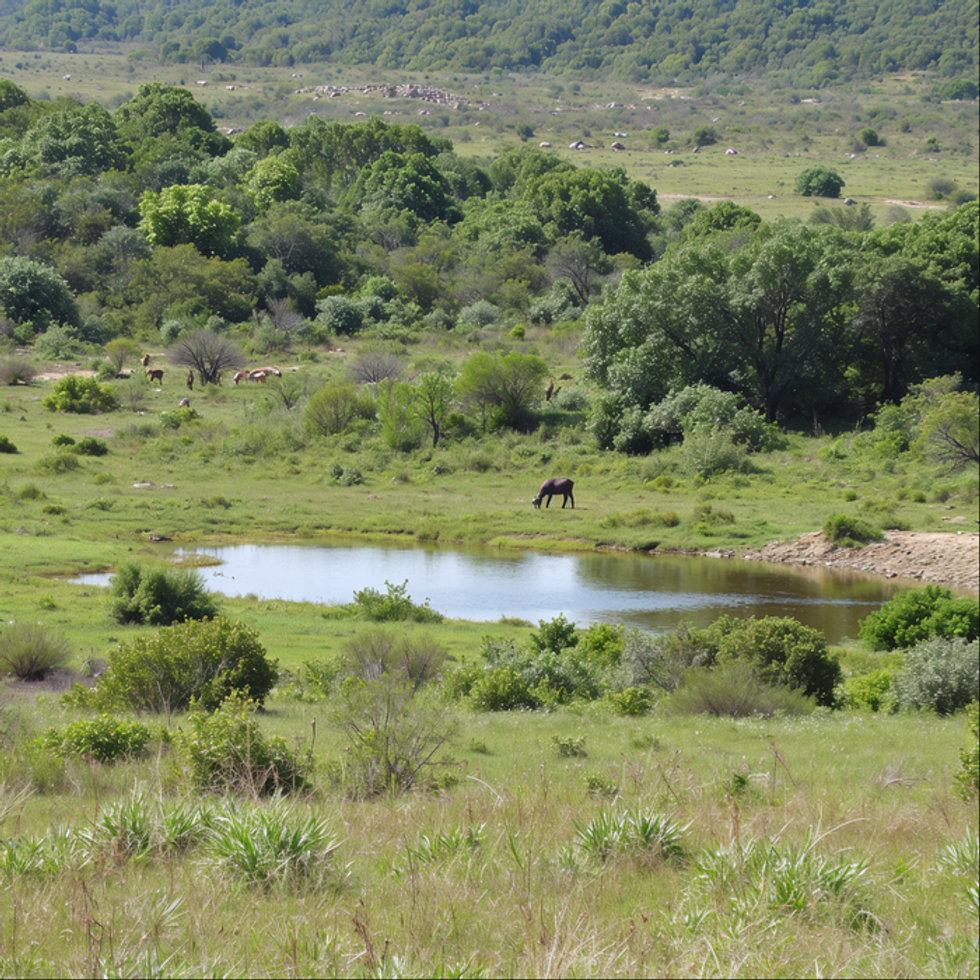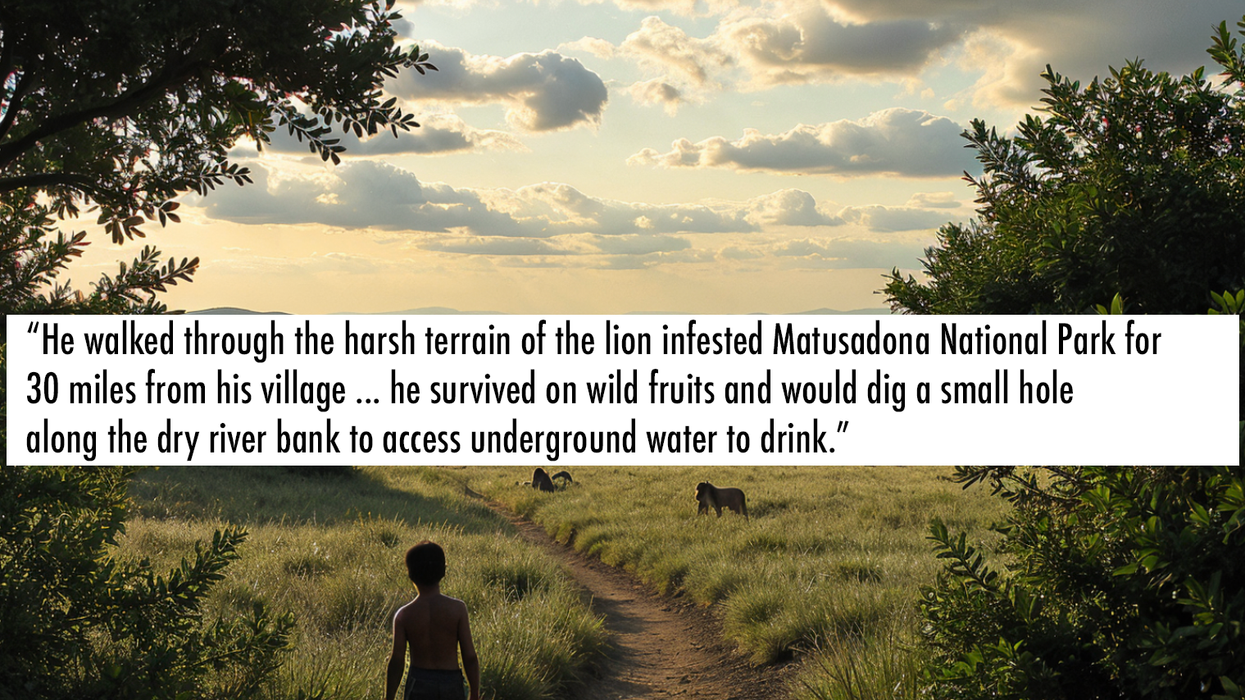When 7-year-old Tinotenda Pudu disappeared from his rural village in northwestern Zimbabwe, no one could have predicted he would survive five days in one of Africa’s most unforgiving wilderness areas. But against all odds, he did—and his remarkable story is inspiring people across the globe.
A wrong turn into the wild
On December 27, 2024, Tinotenda unknowingly wandered into Matusadona National Park, a vast and dangerous landscape spanning nearly 570 square miles. Known for once having the highest density of lions in Africa, the park is home to leopards, elephants, buffalo, and other potentially deadly wildlife.

As days passed, the stakes grew higher. Local search teams feared the worst, especially given the park’s reputation. But while they were scouring the terrain, Tinotenda was doing everything he could to survive.
"A true miracle in remote Kasvisva community."
— @mutsamu
Surviving the unimaginable
According to reports from CNN, Tinotenda relied on wild fruits known locally as nchoomva and dug for underground water on dry riverbeds—a method used in drought-prone areas and passed down through generations. Using his hands and a stick, he created a small well, called Mukàla in Tonga (or Mufuku in Shona), to drink from.
"He survived on wild fruit and hand-dug water."
— @mutsamu
Search teams, deeply moved by the community's commitment, beat drums in hopes that sound might guide him back. Torrential rains made the task harder by washing away footprints, but the local spirit never wavered.
💫 A boy missing & found in Matusadonha game park
A true miracle in remote Kasvisva community, Nyaminyami in rural Kariba, a community where one wrong turn could easily lead into a game park. 8-year-old Tinotenda Pudu wandered away, lost direction & unknowingly headed into the… pic.twitter.com/z19BLffTZW
— Mutsa Murombedzi MP🇿🇼 (@mutsamu) January 1, 2025
As noted by the New York Post, fresh tracks were finally spotted on December 30. That clue changed everything. Tinotenda had actually run toward the sound of ranger vehicles the day before—but missed them by minutes.
The rescue
On the morning of December 31, just one day before New Year’s, rescuers found Tinotenda 30 miles from home—alive, though caked in dirt and exhausted. He was rushed to a local clinic for evaluation and later transferred to a hospital. According to an update shared by Mutsa Murombedzi, he was stable but undergoing mental health assessments to ensure no long-term trauma.
"This was probably his last chance."
— Mutsa Murombedzi
Murombedzi, who shared updates on X (formerly Twitter), didn’t hold back her gratitude.
He survived on eating a wild fruit called Nchoomva in Tonga. It is Tsvanzva like or its actually the Tsvanzva. Then water he would go on the dry river bank and use hands and a stick to dig a Mukàla in Tonga or what we call Mufuku in shona and drank water from there. He was very…
— Mutsa Murombedzi MP🇿🇼 (@mutsamu) January 1, 2025
A story that resonated worldwide

The story has captured international attention, with many praising the collective efforts of park rangers, police, and community members who refused to give up hope. What began as a terrifying disappearance has become a symbol of resilience, not only for Tinotenda and his family, but for the entire region.
“This is a testament to the power of unity, hope, prayer and never giving up,” said Murombedzi, according to the New York Post.
The world is watching and celebrating a little boy whose courage and instinct helped him outlast nature’s most brutal tests. Tinotenda Pudu didn’t just survive—he showed us all what hope looks like in action.












 It wasn't even February, so she wasn't expecting what came next.
It wasn't even February, so she wasn't expecting what came next.  The hug came first, the 'yes' took a few moments more.
The hug came first, the 'yes' took a few moments more. 






 Representative Image Source: Pexels | Oleksandr P
Representative Image Source: Pexels | Oleksandr P  Layout of the plane seatsImage Source: Mumsnet |
Layout of the plane seatsImage Source: Mumsnet | 




 Image Source: Joshua Potash | Reddit
Image Source: Joshua Potash | Reddit 



 Representative photo by luis arias |
Representative photo by luis arias | 
 Representative photo by Jamie Lee |
Representative photo by Jamie Lee | 
